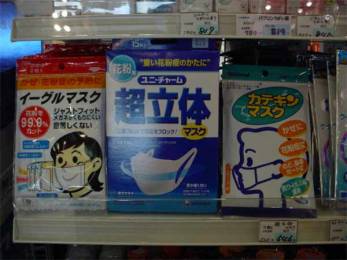
Healthcare, medicine & pharmaceuticals
User Generated Medical Content
If you thought user-generated content was limited to the media and entertainment industries you’d be wrong. The medical industry has recently seen an outbreak of cancer videos, wellness wikis and bulimia blogs that borders on a epidemic. In many ways this is nothing new. Online support groups have been around for at least 15 years and the distribution of material related to specific medical conditions via physical meetings has been around much longer than that. What is changing is content. The reason for this shift is pretty straightforward. Increasing connectivity allows patients to access what other people think and feel and tools for creating and filtering content are more widely available and easier to use. Add to this the popularity of Web 2.0 or user-generated and user-filtered sites such as YouTube, Facebook and Wikipedia and it’s easy to see why some people are getting very excited about the prospects for ‘Health 2.0’. Moreover, user-generated content allows patients to control their own destiny and not be beholden to medical professions, many of whom are themselves suffering from information fatigue caused by the sheer amount of medical information now being created and distributed through more traditional channels.
But does user-generated medical content really have a future? On the one hand, you’d think that privacy issues alone would prevent any meaningful exchange of knowledge but this doesn’t seem to be an issue. Equally, you might suspect that the information itself would be unreliable, or even harmful, but a study in the British Medical Journal found that just 6% of such information was factually inaccurate. According to Jupiter Research, 20% of US Internet users have now generated some kind of health-related information for the Internet and according to a PEW Internet & American Life study almost 1/3 of the 100 million Americans that have used the web to find medical information say that such information has been helpful.
Ref: The Economist, Technology Quarterly (UK), 8 September 2007, Health 2.0 www.economist.com
Search words: Wisdom of Crowds, medical advice, UGC
Trend tags: User Generated Content, User Filtering
Source integrity: *****
The Retail Health Trend
Along with the convergence of healthcare with financial planning, from a user’s perspective one of the top trends in medicine is the rapid shift from wholesale to retail delivery.A good example of ‘health retail’ are the medical clinics that are springing up in the US. Companies like Minute Clinic have moved from industry anomaly to retail phenomenon in just a couple of years. As you’d expect, the healthcare industry isn’t too enamoured with the ‘fast food medicine’ trend but the customer need is surely only a response to inadequate care elsewhere in the system.Actually the fast food analogy isn’t too far off the mark. If you look carefully at the business models used by the likes of Minute Clinic, they are remarkably similar to those used in the fast food industry. For instance, there’s transparent menu pricing, convenience, predictable service, computerised systems and standardised building formats. It is, of course, ironic that the same models used by fast food companies to make you unhealthy (some would argue) are being used by retail health clinics to make you well again, but that’s progress of sorts.
Ref: Fast Company (US), September 2007, ‘Fast-Food Medicine’, E. McGirt. www.fastcompany.com
See also www.medicentre.co.uk
Search words: Retail health clinics, Minute Clinic
Trend tags: Convenience, deregulation
Source integrity: *****
Statistics to Send You To Sleep
Sleep retail is another trend that I’ve been writing about for quite a while. I used the term ‘sleep is the new sex’ back in August 2006. Anyway, a number of new studies seem to support the idea that the siesta might be making a comeback. According to one report, taking an afternoon nap significantly reduces coronary mortality. The Greek study of 23,000 people found that people that took regular naps were 37% less likely to suffer a fatal heart attack. Equally, a study by researchers at John Moores University in the UK seems to indicate that daytime sleep reduces blood pressure, which in turn reduces the risk of a heart attack. This is clearly good news for the likes of MetroNaps, who ‘sell’ sleep to stress-out New Yorkers. However, another study says that our knowledge about how much sleep we are actually getting is inaccurate. Researchers at Arizona State University (US) say that people generally overestimate how much sleep they’ve had the night before by around an hour. According to their study, people generally think they’re sleeping seven hours and one minute per night but in actual fact they are sleeping six hours and six minutes per night.
Ref: The Times (UK), 20 October 2007, ‘Snooze you lose’, S.Compton. www.timesonline.co.uk
Search words: Sleep
Trend tags: Sleep starved
Source integrity: *****
Light Therapy
According to American scientists working at the Lighting Research Centre at Rensselaer Polytechnic Institute, some people are getting the wrong sort of exposure to light. More specifically, some people are getting exposed to the wrong sort of light at the wrong times of day or they are suffering from a mismatch between the type of light and type of activity. This is leading to stress-related conditions, eating disorders, sleeplessness, depression and immune deficiencies. Apparently natural outdoor (blue sky) light stimulates the body’s circadian system, which is effectively the body’s internal clock.Too much exposure to electric light – or, worse, the light generated by a computer screen – causes various physical and emotional problems, although this can be easily treated by standing outside for 15 minutes or by using a daylight-mimicking light box.
Given the trend towards working inside and the trend towards screen-based entertainment this is perhaps something we’ll be hearing more about in the future.
Ref: The Times (UK), 15 September 2007, ‘Light of your life’, J. Nash. www.timesonline.co.uk
Search words: Light, light therapy
Trend tags: -
Source integrity: *****
